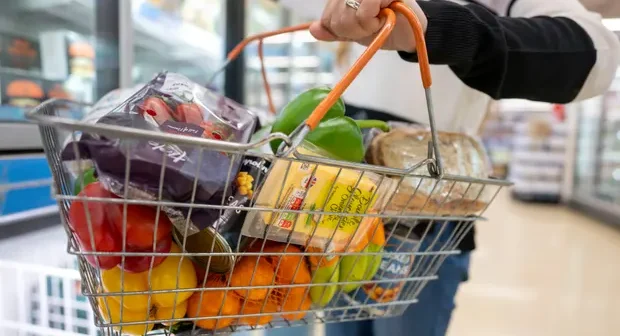UK inflation fell by less than expected in March, sticking in double figures as households came under pressure from food and drink prices soaring at the fastest annual rate since 1977.
The Office for National Statistics (ONS) said annual inflation as measured by the consumer prices index fell to 10.1% last month, resuming a downward trajectory after an unexpected rise to 10.4% in February. Inflation had peaked at 11.1% in October. City economists had forecast a drop to 9.8%.
The odds of the Bank of England raising interest rates again next month jumped on the news, with markets pricing in a 97% chance that policymakers will lift the base rate to 4.5% on 11 May and indicating the measure could hit 5% by the autumn.
However, those falls were offset by the price of food and nonalcoholic drinks accelerating by 19.1% in the year to March, fuelled by record growth in the price of bread and cereals, as well as a sharp rise for biscuits and cakes.
Grant Fitzner, the chief economist at the ONS, said: “The main drivers of the decline were motor fuel prices and heating oil costs, both of which fell after sharp rises at the same time last year. Clothing, furniture and household goods prices increased, but more slowly than a year ago.
“However, these were partially offset by the cost of food, which is still climbing steeply, with bread and cereal price inflation at a record high.”
The development will add to pressure on the poorest households in Britain in particular, who spend a larger share of their income on basic essentials than richer ones.
The ONS said fruit, chocolate and confectionery, and meat prices all soared, while the price of ready meals and sauces, and hot beverages rose at the fastest annual rate since comparable records began in 1989.

